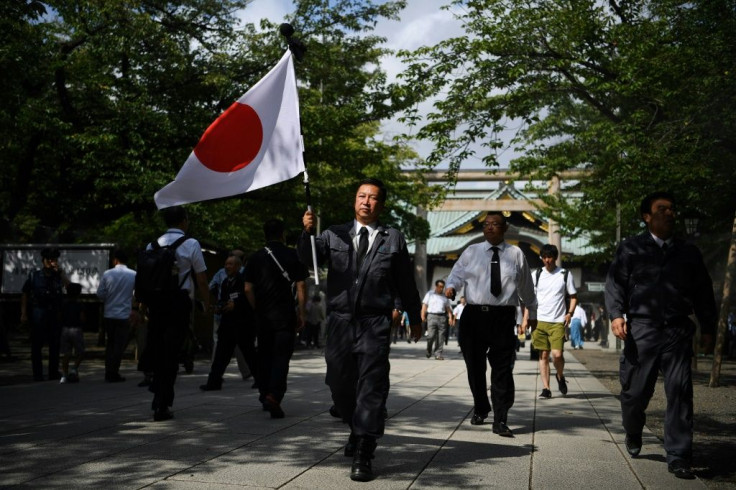Japanese Minister Visits Controversial Tokyo War Shrine

A Japanese minister on Thursday visited the Yasukuni war shrine at the centre of long-running tensions with regional neighbours -- the first cabinet-level official visit in over two years.
Seiichi Eto, the minister in charge of Okinawa and what Japan calls "the Northern Territories" -- disputed with Russia -- visited the shrine at the start of the annual autumn festival, an official at Eto's office told AFP.
Prime Minister Shinzo Abe meanwhile continued his recent practice of staying away from the shrine, instead sending a ritual offering, public broadcaster NHK reported.
The Yasukuni Shrine honours 2.5 million war dead, mostly Japanese, who perished in the country's wars since the late 19th century.
It also enshrines senior military and political figures convicted of war crimes by an international tribunal after World War II.
Visits to the shrine by government officials have angered countries that suffered at the hands of the Japanese military during World War II, particularly South Korea and China.
Chinese foreign ministry spokesman Geng Shuang lashed out at the visit and Abe's ritual offering, saying: "The Yasukuni shrine is a spiritual tool and symbol of the war of foreign aggression launched by Japanese militarism."
"We urge the Japanese side to earnestly abide by, face up to, and self-examine its attitude and commitments to the history of aggression," Geng said.
The South Korean foreign ministry said the government "expresses deep regrets over the fact that the Japanese government and parliamentary leaders again sent offerings or paid visits to the Yasukuni Shrine that romanticises Japan's history of wars of invasion."
Relations between Tokyo and Seoul are already at their lowest point in years over a long-running dispute related to Japan's use of forced labour during the war.
The dispute has seen the two sides swap retaliatory trade sanctions, with the number of South Korean visitors to Japan plummeting in recent months.
© Copyright AFP 2024. All rights reserved.





















